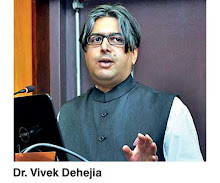The pandemic at an inflection point calls for extra care
Vivek Dehejia
Fully a year and a half into the COVID19 global pandemic, the world appears to be at an inflection point in the management of the virus, and a clear divide is emerging between advanced and emerging countries. Last time, your columnist discussed the pros and cons of the United Kingdom’s re-opening plan, with the penultimate stage of unlocking on 19 July — dubbed “Freedom Day” by the British tabloids — while cases were still on the rise, driven by the Delta variant.
As I noted then (“Boris Johnson is taking a big gamble with ‘Freedom Day’”, 26 July), Prime Minister Boris Johnson was taking a big gamble on re-opening under such circumstances. The gamble appears to have paid off. After coming to a crest, new infections have begun to taper off, and serious illness, hospitalization, and morality remain far below the levels of earlier waves of the pandemic, which preceded widespread vaccination. If things go according to script, the UK is poised to remove removing pandemic-era restrictions later this month.
By contrast, in the United States, a clear divide has emerged between the “Red” (Republican) and “Blue” (Democratic) states — the former have relatively low levels of vaccination compared to the latter — not due to any supply constraints — the US is awash in vaccines — but due to vaccine hesitancy, which is much higher amongst Republicans, especially supporters of former President Donald Trump. While Blue states, such as New York, press ahead with re-opening, while maintaining some pandemic-era restrictions, such as social distancing and mask mandates, Red states are seeing a surge in new infections even as many, such as Florida, have eliminated all pandemic-related restrictions. Florida’s governor, Ron DeSantis, has gone so far as to ban local jurisdictions from re-imposing mask mandates, which the state has eliminated.
Meanwhile, Canada, the other major Anglo-American country in the Western hemisphere, has taken something of a middle path. With high rates of vaccination, most Canadian provinces are on a re-opening path, albeit at different speeds. Thus, while Ontario, the largest province, retains a mask mandate in indoor spaces, other provinces, such as Alberta, have eliminated it. Absent a major new Delta-driven outbreak, which cannot be ruled out, Canada as a whole appears to be on track for a return to normalcy, more or less, by later this autumn or early winter.
Variations of this pattern may be observed in other advanced Western countries, such as in Europe, all of which have now attained relatively high rates of vaccination, and most of whom are now well on a re-opening path. This summer has seen the return of major music festivals, such as the Salzburg Festival in Austria, with relatively few restrictions. Indeed, the festival had even dispensed with mandatory mask use inside the concert and theatre venues, until a fully vaccinated ticket holder tested positive. The mask mandate was hastily re-introduced, but few other restrictions remain. A short distance across the border in the German state of Bavaria, the Bayreuth Festival, devoted to the music of the 19th century composer Richard Wagner, is also back in full swing. Intra-European travel has also, just about, returned to normal, and foreign tourists have also returned.
The story, however, is very different in most of the emerging and developing world, where rates of vaccination, even of first doses, remain low, with full vaccination percentages often in the single digits. These countries, spanning the world from Latin America to Africa and Asia, remain acutely vulnerable to outbreaks of the virus, especially the virulent and highly transmissible Delta variant. Recent weeks have seen major outbreaks across Southeast Asia somewhat reminiscent of the devastating second wave that India experienced earlier this year.
The world now stands on the cusp of a two-speed recovery — both from the pandemic and of the economy — driven by differential vaccination rates in the rich as compared to the poor countries. This has fuelled cries for “global vaccine equity”, and even the World Health Organisation (WHO) has thrown its weight behind the idea. Recently, the WHO called for a pause on “booster” doses being planned in several rich countries, arguing that the need of the hour is to ramp up vaccination rates in the developing world. It is indeed a tragedy that, as rich countries such as the US and Canada sit on vast stockpiles of vaccines, many of which are sure to expire unused, there are millions of people in poorer countries still awaiting a second, or in many cases, even a first jab.
The major international financial organisations, such as the World Bank and the International Monetary Fund, as well as banks, investment houses, and management consultancies, have also lent their weight to the argument, as report after report show that ongoing pandemic-related restrictions in many developing countries will be a drag on the global economic recovery.
The implicit argument, although it is rarely stated directly, is that it is in the enlightened self-interest of the rich world to ensure that poorer parts of the world quickly get up to speed on vaccination, else the consequences will be dire for the rich world itself. Not only will the incipient global economic recovery stall, but denizens of the rich countries will be at risk from infection through successive putative new variants of the COVID19 virus against which the vaccines currently in use will presumably be less effective.
Much is at stake as the world stands at this inflection point.
Vivek Dehejia is an associate professor of economics and philosophy at Carleton University in Ottawa, Canada.

No comments:
Post a Comment